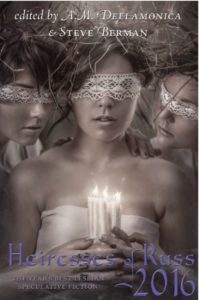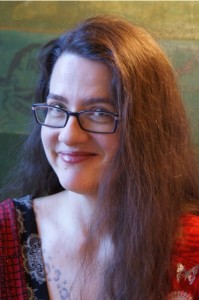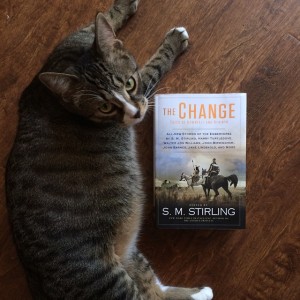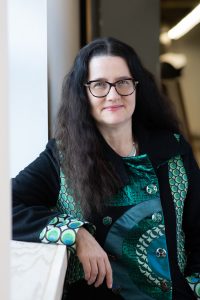 I want to give you all a spoiler-free version of the Midamericon description of the panel I moderated:
I want to give you all a spoiler-free version of the Midamericon description of the panel I moderated:
We Deserve Better: Lesbians and Bi Women for Change
In March 2016 some show killed spoilery spoiler of an spoilery spoiler spoilers. Fans launched a Twitter campaign that became mainstream news. They objected to the “Bury Your Gays” trope, referring to the disproportionately high number of lesbians and bisexual women killed on TV. Two weeks later, one of some other show‘s only lesbian couple was killed. We discuss this disturbing pattern and ask how audiences can help prevent it.
My partners in crime were Jaylee James, Nina Niskanen, and Jay Wolf.
I’m not much for freewheeling moderation. I always show up intending to listen and direct discussion, rather than talking myself, and with questions in hand. What’s more, the four of us did a certain amount of predigesting of the topic, checking out things like this (also-spoilery) list of 162 dead TV lesbians and talking about related topics like queerbaiting and fridging.
Like all good panels, we worked up more material than we actually got to discuss, circled ’round it in an order other than what follows, and we also didn’t get into one of my personal bugbears, the idea that the word “deserve” is actually quite a cruel concept. It’s an important and necessary word, but it has thorns: “You deserve this,” can be honestly intended or victim-blaming. “I deserve this” can be simple truth or blatant entitlement.
But I’m home now, and I’ve noticed that the list of questions I prepared for my panelists is interesting in its own right, a good orientation to the topic if anyone wants it. And so I decided I would post that here.
- Focusing first on TV, which lesbian deaths were most memorable and meaningful to you personally, both going way back and recently?
- Then there are deaths that aren’t necessarily canonical but that have lesbian freight around them. The fate of Ellen Ripley in the third Aliens movie comes after she’s been, to a great extent, masculinized–she’s not gay, but when she dies she has been made to look and act very butch.
- If a show queerbaits us and then kills one of the alleged lesbians involved, is that better or worse than if they hadn’t solicited queer viewers in the first place?
- Looking at the list of 150+ dead TV lesbians, I wondered: were any of those surprises, or did they trigger any Aha! or Uhoh! moments?
- How gender-skewed is this phenomenon? I mean, we all remember how Brokeback Mountain ends. Is it just a woman-on-woman version of fridging?
- I’ve mentioned fridging because it’s another common story development that we, as more sophisticated and politically savvy audiences, have become aware and critical of. All of these tropes have been the subject of discussion and debate within fandom and the writing community. What do you think of this?
- Now, since I’ve glided on to cinema, what about this phenom in comics and prose? In the past, there were the 1950’s bad girl lesbian dies books… does anyone know how this is playing out now?
- As writers, how do you balance the need to occasionally kill off characters with an awareness that every queer character is precious?
- If we add in characters with implied deaths, including incidental victims or even crazy killer lesbians who aren’t part of the main cast (guest star deaths, in other words) then I wonder if the question shouldn’t be: Who’s done it right? Who has survived? Who do we love who hasn’t been killed off?












